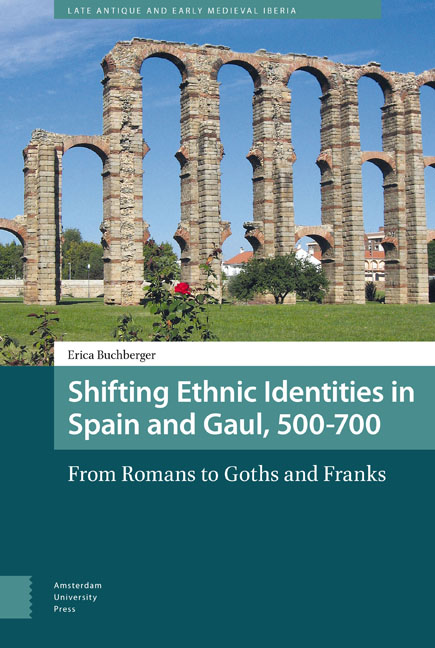Summary
The kingdoms of Western Europe changed significantly over the course of the sixth and seventh centuries, and a large part of this change was the weakening of Roman identities in favour of greater identification with Gothic, Frankish, and other rulers. For most of the fifth century, the Roman Empire still existed in the West, and its citizens were still politically Roman, serving in imperial offices and being, at least nominally, under Roman rule. While on a local level many of them were ruled by barbarian federates, the fact that these federates were supposedly managing on behalf of Rome provided an illusion of Roman control even if actual Roman control was shaky. By the seventh century, however, the Western Empire had faded into memory in much of the West, and descendants of Roman citizens in most of Gaul and Spain had become clear subjects of barbarian kings. No one alive then, outside of the strip of Byzantine holdings on the Iberian coast, had experienced imperial rule first-hand, and thus Roman identity had lost much of its resonance for these later generations. In Spain, it was even associated with the Byzantine enemies of the Visigothic kings, who aimed to be the ‘true’ heirs of Rome in comparison. The most essential identity of those of Roman descent – Roman – no longer matched the political state(s) in which they lived. People born to Roman parents under barbarian rule who participated in a mixed society and a barbarian army and court are likely, therefore, to have identified more strongly with these barbarians than with their distant Roman ancestors.
Many aspects of their lives, however, were much the same, particularly in the sixth century. In southern Gaul especially, Romans maintained a similar culture, social structure, and set of world views as they had before. The words they used to express their experiences reflected this ‘Roman’ milieu. Writing in sixth-century Gaul, Venantius Fortunatus contrasted ‘Roman’ with ‘barbarian’, as was common in antiquity. Roman ancestry in his view meant being civilized, cultured, educated, and otherwise privileged, while barbarian birth predisposed a person to incivility and uncouthness and was often a handicap, though not an insurmountable one. One could claim Roman identity through education and culture in addition to descent from Roman citizens, and outside of an imperial framework, descent became a more important facet.
- Type
- Chapter
- Information
- Shifting Ethnic Identities in Spain and Gaul, 500–700From Romans to Goths and Franks, pp. 179 - 186Publisher: Amsterdam University PressPrint publication year: 2017



